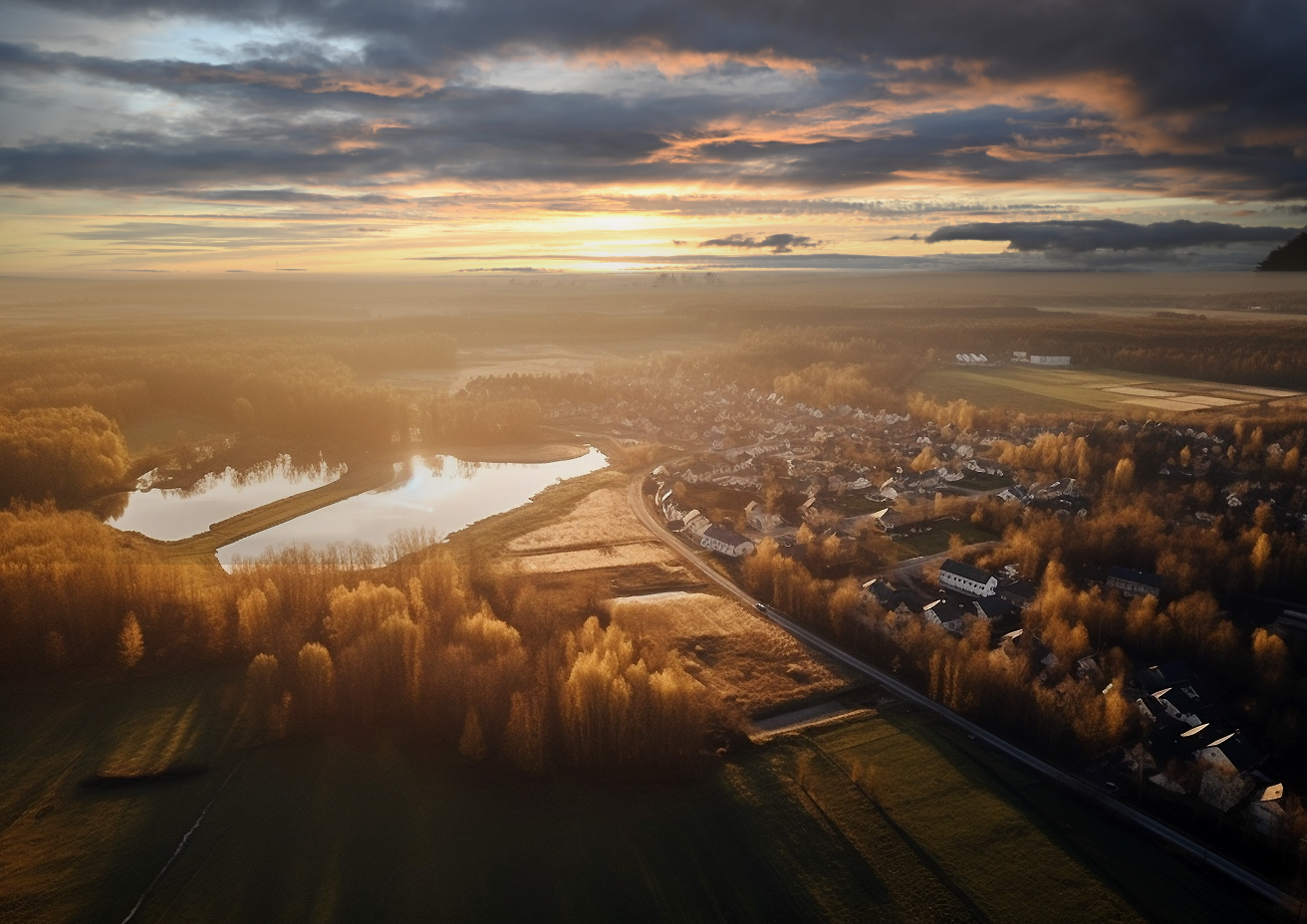For the first time, more people moved to the countryside than to the city in 2021. And the net migration balance reversing in the second year of the pandemic is no coincidence: A house in the country became a status symbol, the epitome of freedom and quality of life. What started as a trickle turned into an unstoppable megatrend as a result of the coronavirus pandemic.
We’ve now put the pandemic behind us, but the world has changed: Working from home is the new normal, the daily commute to the office the exception. Remote work, online services and well-developed commuter transport links mean it is no longer necessary to actually live in the city.
There are both push and pull factors at play here: For many city dwellers, life in the big city has simply become too noisy, too crowded and too expensive, to say nothing of the difficulties of finding a decent school or nursery.
At the same time, a life in the country solves all of the above problems, combined with being closer to nature and encouraging a certain self-sufficiency. After all, what do vegetable gardens, stacks of firewood, compost heaps, heat pumps and maybe even a well in the garden convey if not a feeling of independence.
The trend is real, the numbers speak for themselves. According to a study from the opinion research institute Civey, one in three German city dwellers want to get out of the city, at least at weekends. There seems to be hardly anyone over forty in Berlin who hasn’t at least thought about looking for a cottage in Brandenburg, and many have already made a permanent move to the region around Berlin.
Most urban “refugees” tend to be in that phase of life just before or just after starting a family. Most are still working, but their wild partying days are behind them. Life revolves more around Netflix than nightclubs. And they appreciate being woken by a rooster’s crows in the morning, not by a hangover.
Most seem to be opting for a hybrid model, either by buying a weekend house, or by settling in a rural residence with good rail connections to the city. The prerequisite, of course, is fast (and reliable) internet for seamless remote working.
For a long time, this meant moving to the exurbs, to the bits of Brandenburg with direct commuter rail links to Berlin, so to speak. Over the last few years, however, the radius has expanded somewhat – not so much in terms of travel times, but in terms of spatial and perceived distances from Berlin. It is the “second-tier cities”, those that combine the advantages of both city and country life, that have experienced the fastest growth. In fact, many now have better and more modern schools than Berlin, and the expansion of fibre-optic networks is progressing full speed ahead.
These towns – Brandenburg an der Havel, Bad Belzig, Neuruppin, Zehdenick and Fürstenberg – are becoming increasingly popular because of their easy accessibility, well-established infrastructure and closeness to nature. In particular, weekend chalets, senior living and holiday homes are also gaining in popularity.
Since the pandemic, lots of what started out as weekend retreats have evolved into out-and-out second homes; at least without school-age children and with a location-independent job, many Berliners – especially the creative and freelance elite – have become accustomed to spending almost the entire summer in the country.
In this context, and this applies to the short-term use of holiday homes in particular, an increasing wariness of air travel certainly plays a role. In contrast to a finca in Majorca, you don’t have to justify having a house in Brandenburg – and above all, thanks to remote work, such domiciles offer year-round added value, even during the week.
Sector7 has also recognised the megatrend of urban flight and desire for the countryside and has dedicated a separate business area to it. Under the “Urban Escape” brand, we are developing large plots of land in attractive locations with good connections and local amenities – the increase in value is achieved through the creation of planning law and innovative utilisation concepts.
One particular pearl in our portfolio is the LANDEN project https://sectorseven.de/en/project/landen-fuerstenberg-havel/ in Fürstenberg: The town on the picturesque Havel River and gateway to the Mecklenburg Lake District has long since ceased to be an insider tip, and current developments bear witness to the fact – Fürstenberger Schloss, Neue Ufer https://sectorseven.de/en/project/neue-ufer-baalensee-fuerstenberg/ at Havelpark, the Kraftfuttermischwerk, and the Verstehbahnhof. Something is happening here, Fürstenberg has become a dream destination for many Berliners, attracting them with its unique combination of lakes, vast forests, a direct railway connection to Berlin and, last but not least, the best internet in all of Brandenburg.
LANDEN enjoys a direct waterfront location on the Havel River, while Röblinsee bathing lake, surrounded by Wilhelminian-style villas, the local railway station and the old town are all within easy walking distance.
The concept envisions a countryside neighbourhood as a weekend escape, with cosy apartments and large townhouses – each with its own access and outdoor space, all with views of the water and sun-kissed exposures.
The project will include weekend units and holiday homes, with the addition of further units for primary or secondary residential use in the pipeline. LANDEN is rounded off by various service features in the sense of a club concept: Convenience and community for city dwellers with a desire for nature.
Source:
